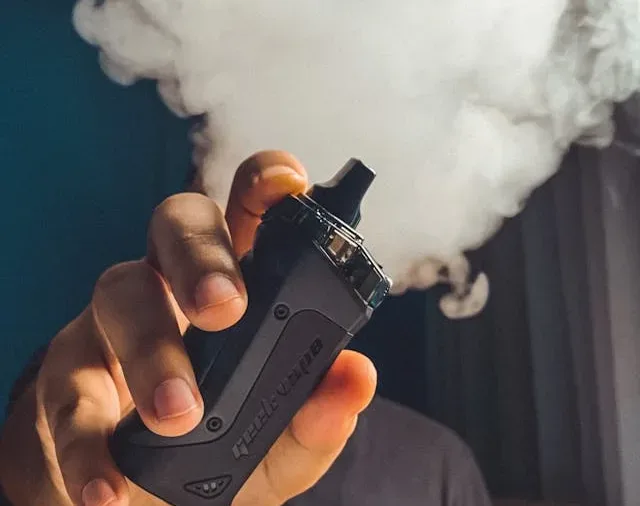Largest review yet links youth vaping to smoking, asthma and poor mental health
Young people who take up vaping are three times more likely to start smoking than those who never use e-cigarettes, according to the largest review yet into the health risks facing teenagers.
The study, published in Tobacco Control, assessed 56 separate reviews and concluded that e-cigarettes could act as a gateway to smoking. It also found strong associations with asthma, cough, injuries and poor mental health, as well as potential risks of headaches, oral health problems and substance use.
Researchers said the evidence was strikingly consistent across multiple studies. Su Golder, associate professor in health science at the University of York and co-author of the review, explained: “Young people who use e-cigarettes are more likely to smoke in the future. These findings support stronger public health measures to protect teens from the risks associated with vaping.”
Although the review does not confirm vaping directly causes smoking, the authors warned that precautionary restrictions on vape sales and marketing aimed at children are urgently needed.
Embed from Getty ImagesAsthma emerged as the most frequent health condition linked to vaping. The review found teenagers who vaped faced between a 20% and 36% higher risk of being diagnosed with asthma, and a 44% higher chance of worsening symptoms compared with non-vapers.
Dr Ronny Cheung, of the Royal College of Paediatrics, said the findings added to mounting evidence that vaping was “a serious threat to health and wellbeing, with strong links to smoking and other harmful behaviours”. He called on the government not to delay its tobacco and vapes bill, which would limit flavours, packaging and advertising designed to attract children.
The World Health Organization has previously warned of an “alarming” rise in youth vaping across the globe. In the UK, Action on Smoking and Health (ASH) reported earlier this year that one in five children aged 11 to 17 – about 1.1 million – had tried vaping. That figure has tripled since 2020.
Hazel Cheeseman, ASH’s chief executive, said: “The rise in teen vaping in recent years is very concerning and needs urgent action from government. Vapes are effective quit aids for adults who smoke and while they are less harmful than smoking, they are not risk free and should not be used by children.”
The study acknowledged limitations. Most of the research reviewed was observational, meaning a direct causal link could not be proven. Some experts, including Professor Ann McNeill of King’s College London, cautioned against over-interpreting results given the low quality of several studies. She suggested other factors, such as impulsive or sensation-seeking personalities, might explain why young people who vape are more likely to smoke.
However, others stressed the scale of evidence could not be ignored. Dr Stephen Burgess, a statistician at the University of Cambridge, said: “The associations demonstrated are both extensive in scope and strong in magnitude. A causal explanation is plausible and consistent with the evidence provided, but can only be proven by randomised trials.”
The vaping industry rejected the review’s conclusions. John Dunne, director general of the UK Vaping Industry Association, said: “We need to stop demonising vaping. Until the relative risks of cigarettes and vaping are understood by smokers, 220 people will continue to die every day in the UK from smoking-related illnesses.”
The Department of Health and Social Care, which commissioned the research, described it as the most comprehensive assessment of youth vaping to date. A spokesperson said: “While vapes are less harmful than smoking and can be an effective quit aid, children and non-smokers should never vape. The rise in youth vaping requires urgent action – that’s why we are pressing ahead with the landmark tobacco and vapes bill and a single-use vape ban.”
With millions of children now exposed to e-cigarettes, the review concludes that the health risks are real and escalating – and that governments must act quickly before a new generation becomes hooked on nicotine.
